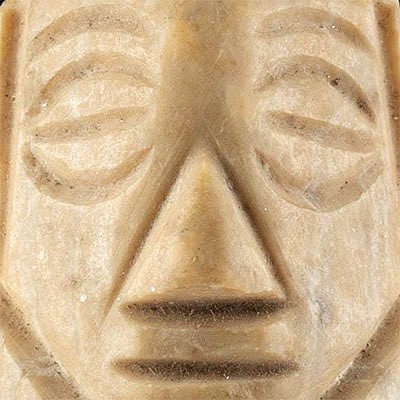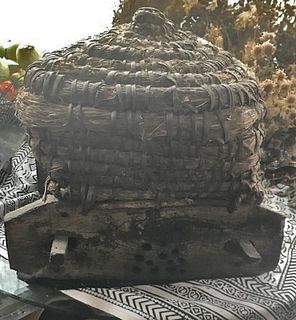3 Fine Roman Glass Gaming Counters
Lot 100
About Seller
Artemis Fine Arts
686 S Taylor Ave, Ste 106
Louisville, CO 80027
United States
Selling antiquities, ancient and ethnographic art online since 1993, Artemis Gallery specializes in Classical Antiquities (Egyptian, Greek, Roman, Near Eastern), Asian, Pre-Columbian, African / Tribal / Oceanographic art. Our extensive inventory includes pottery, stone, metal, wood, glass and textil...Read more
Categories
Estimate:
$400 - $600
Absentee vs Live bid
Two ways to bid:
- Leave a max absentee bid and the platform will bid on your behalf up to your maximum bid during the live auction.
- Bid live during the auction and your bids will be submitted real-time to the auctioneer.
Bid Increments
| Price | Bid Increment |
|---|---|
| $0 | $25 |
| $300 | $50 |
| $1,000 | $100 |
| $2,000 | $250 |
| $5,000 | $500 |
| $10,000 | $1,000 |
| $20,000 | $2,500 |
| $50,000 | $5,000 |
| $100,000 | $10,000 |
| $200,000 | $20,000 |
About Auction
By Artemis Fine Arts
Jun 3, 2021
Set Reminder
2021-06-03 12:00:00
2021-06-03 12:00:00
America/New_York
Bidsquare
Bidsquare : It's a Small World | Diminutive Artifacts
https://www.bidsquare.com/auctions/artemis-gallery/its-a-small-world-diminutive-artifacts-7031
Join us for a very special auction featuring art & artifacts from East to West, North to South, and everywhere in between - with one small thing in common - size! Everything in this auction is approximately 6 inches or less - perfect for that last bit of shelf space in your curio cabinet! Artemis Fine Arts info@artemisgallery.com
Join us for a very special auction featuring art & artifacts from East to West, North to South, and everywhere in between - with one small thing in common - size! Everything in this auction is approximately 6 inches or less - perfect for that last bit of shelf space in your curio cabinet! Artemis Fine Arts info@artemisgallery.com
- Lot Description
Roman Empire, Imperial Period, ca. 1st to 3rd century CE. A lot of three gaming counters in exemplary condition in colors of bright green, baby blue, and black. The game-pieces are smooth to the touch with a flattened rounded button presentation. Most games of chance, with the exception of wagers on physical sports, were strictly forbidden by Roman law and were punishable with a fine fixed at four times the value of any stakes. Nevertheless, scholars suggest that most “caponulae” and “popinae” (inns and eating houses) encouraged clandestine gaming in their back premises. The hemispherical counters are presented on a matte paper backing. Size: 4" L x 7" W (10.2 cm x 17.8 cm)
These were known to Pliny the Elder, the author of 'Naturalis Historia' - the editorial model for the world's first encyclopedias - as 'oculi', or eyeballs, due to their rounded appearance as a consequence of being melted. They were made by slicing small sections of canes (around 5 to 10 mm thick), arranging them on a surface such as a terracotta tile and reheating them in a furnace until they deformed under the influence of gravity, resulting in a flattened, rounded 'button' shape. The underside may have needed grinding to remove any particles of clay that may have stuck to it.
Provenance: private Vero Beach, Florida, USA collection; ex-private United Kingdom collection, acquired 1980s
All items legal to buy/sell under U.S. Statute covering cultural patrimony Code 2600, CHAPTER 14, and are guaranteed to be as described or your money back.
A Certificate of Authenticity will accompany all winning bids.
We ship worldwide and handle all shipping in-house for your convenience.
#163789Light earthen deposits scattered on glass counters. Counters bound by adhesive to paper-backing. Minor signs of aging to paper-backing, including softened corners. Otherwise, excellent condition.Condition
- Shipping Info
-
All shipping is handled in-house for your convenience. Your invoice from Artemis Gallery will include shipping calculation instructions. If in doubt, please inquire BEFORE bidding for estimated shipping costs for individual items.
-
- Buyer's Premium



 EUR
EUR CAD
CAD AUD
AUD GBP
GBP MXN
MXN HKD
HKD CNY
CNY MYR
MYR SEK
SEK SGD
SGD CHF
CHF THB
THB













